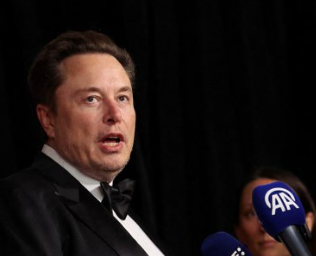The people have spoken. The Shareholders are with Elon Musk. The Federal government’s interference is not wanted, so the witch hunt against Elon needs to stop.
Elon Musk’s staggering $54 billion pay package at Tesla, which has sparked as much controversy as the CEO himself, was recently at the heart of a significant legal and shareholder drama. Despite being voided by the Delaware Court of Chancery for lacking independent board approval and adequate shareholder information, Musk triumphed in an unconventional shareholder vote last week, a result many did not foresee.
Tesla’s journey under Musk has been nothing short of extraordinary. Skeptics doubted the feasibility of the ambitious targets set in his 2018 pay deal, where the size of the stock options seemed purely theoretical. Yet, Tesla’s stock soared beyond expectations, briefly valuing the company at one trillion dollars. Musk’s recent win in the shareholder vote underscores a strong endorsement from Tesla shareholders, who largely credit him for the company’s impressive financial performance and see his compensation as justified.
Elon Musk’s pay day: Tesla shareholders approve $54 billion package
North America, Al Jazeera English, usnews, Worldnewshttps://t.co/Y3GbjvkR2H— News Buyback (@NextgennewsO) June 14, 2024
However, the attribution of Tesla’s success solely to Musk is debated. In recent years, Musk’s focus seemed divided, particularly with his acquisition of Twitter and the reallocation of resources from Tesla to his other business ventures, raising concerns about his commitment to Tesla. This backdrop made the shareholder support in the recent vote appear as a call for Musk to reaffirm his dedication to the company.
The saga is far from over. The original judge who nullified the pay package will now reconsider the case in light of the recent shareholder vote. While the vote may address issues of shareholder disclosure, the composition of Tesla’s shareholder base—comprising about 30% retail investors, many of whom are ardent Musk supporters—could still influence the final decision. However, it would be a mistake to dismiss the shareholder decision on these grounds, as the democratic will of the shareholders should be respected.
What can Elon Musk buy with his giant Tesla Pay package? https://t.co/QSS2WNIHlL @elonmusk $TSLA #Tesla pic.twitter.com/H6ebfBPYab
— Techinsider (@ElectricNews3) June 16, 2024
The case is likely headed for an appeal, regardless of the outcome. It also opens the possibility for Tesla to reincorporate in Texas, potentially allowing Musk to challenge the Delaware judge’s ruling in a new jurisdiction. However, this strategy would be controversial and could be seen as an attempt to manipulate the legal system.
Elon Musk’s whopping $54 billion pay package was approved by Tesla shareholders pic.twitter.com/tA3zd7zyoF
— Cartel Daily ™ (@CartelDaily) June 14, 2024
Moreover, the re-election of Musk’s brother Kimbal and close associate James Murdoch to Tesla’s board during the vote raises ongoing concerns about the board’s independence. This issue could become increasingly significant, especially if the case moves to a Texas court, where the dynamics might differ significantly from Delaware.
Tesla’s situation is emblematic of a broader trend in entrepreneur-led companies, which often remain private to avoid such public scrutiny. Shareholders have largely benefited from Musk’s leadership style, but this case highlights the potential risks of concentrating too much power in the hands of charismatic leaders. This is the Left’s view. Then the shareholders all understand value, and want Tesla to succeed. Elon Musk has let us all know what his vision is, and that vision may very well propel Tesla stock into many multiples of where it is now in the coming years with his Taxi service as well as robots going into full gear.
Key Point:
i. Legal and Shareholder Drama: Elon Musk’s $54 billion compensation package at Tesla was initially voided by the Delaware Court of Chancery due to concerns over board independence and inadequate shareholder information, but was later upheld by a surprising shareholder vote.
ii. Shareholder Vote Success: Despite skepticism, the shareholder vote endorsed Musk, reflecting a belief among many shareholders that his leadership justifies his substantial compensation given Tesla’s significant market performance.
iii. Debate Over Musk’s Focus: Critics argue that Musk’s attention has been divided, particularly with his involvement with Twitter and other ventures, potentially detracting from his commitments to Tesla.
iv. Potential for Appeal and Reincorporation: The outcome of the shareholder vote may lead to further legal actions, including an appeal. Additionally, there is a possibility that Tesla could reincorporate in Texas, which might influence future legal proceedings.
v. Governance Concerns: The re-election of Musk’s close associates to Tesla’s board raises ongoing concerns about the independence of the board, highlighting the broader governance issues within entrepreneur-led companies like Tesla.
Charles William III – Reprinted with permission of Whatfinger News



